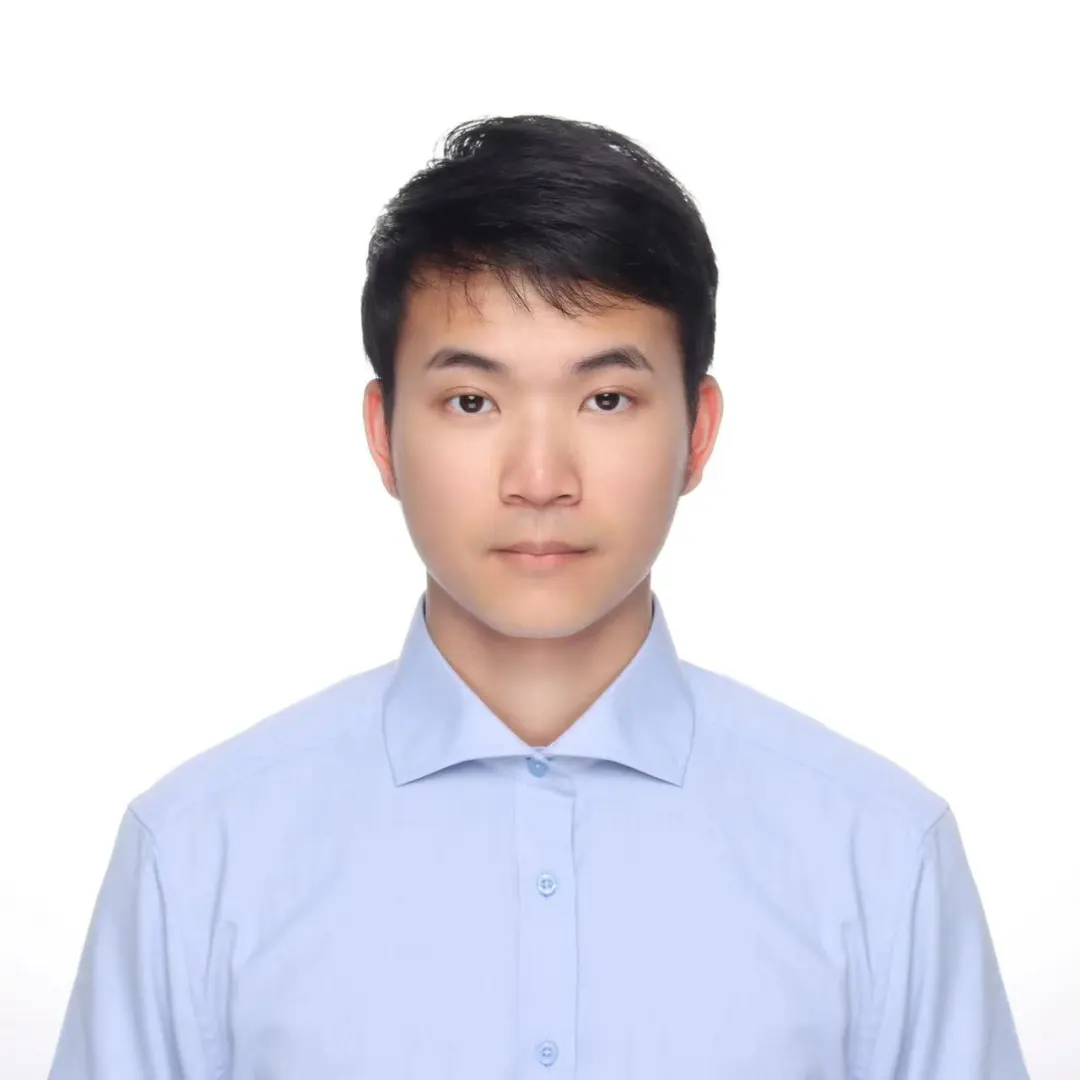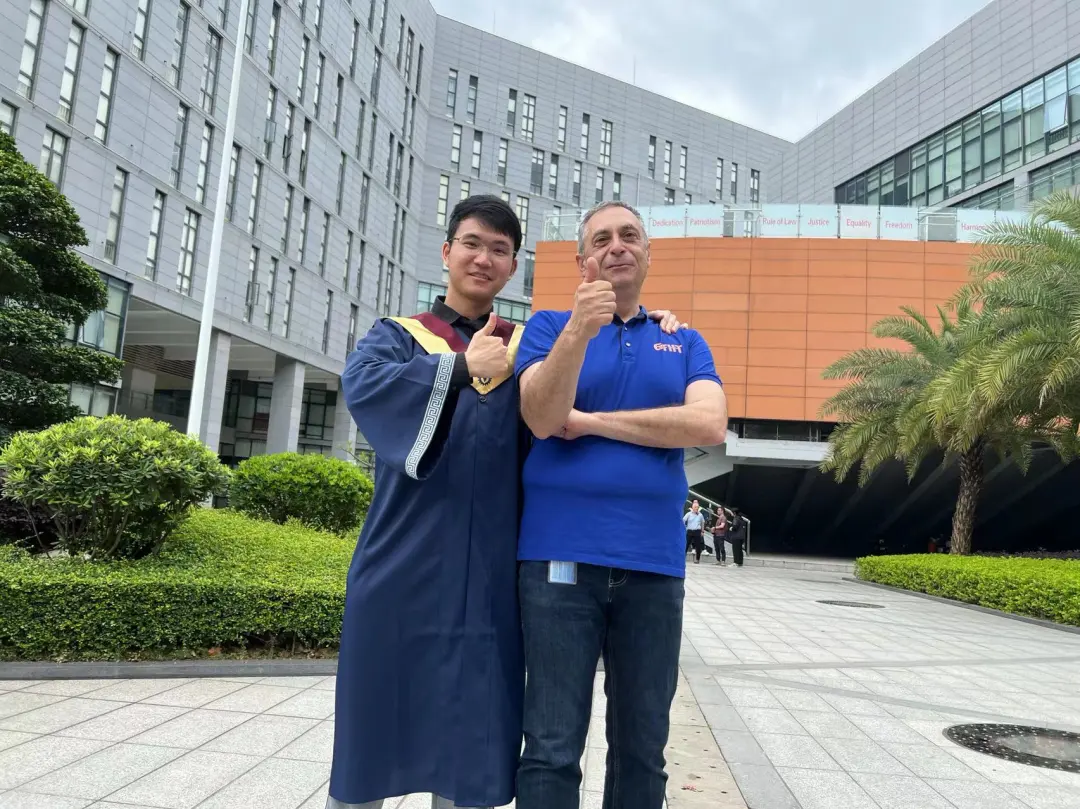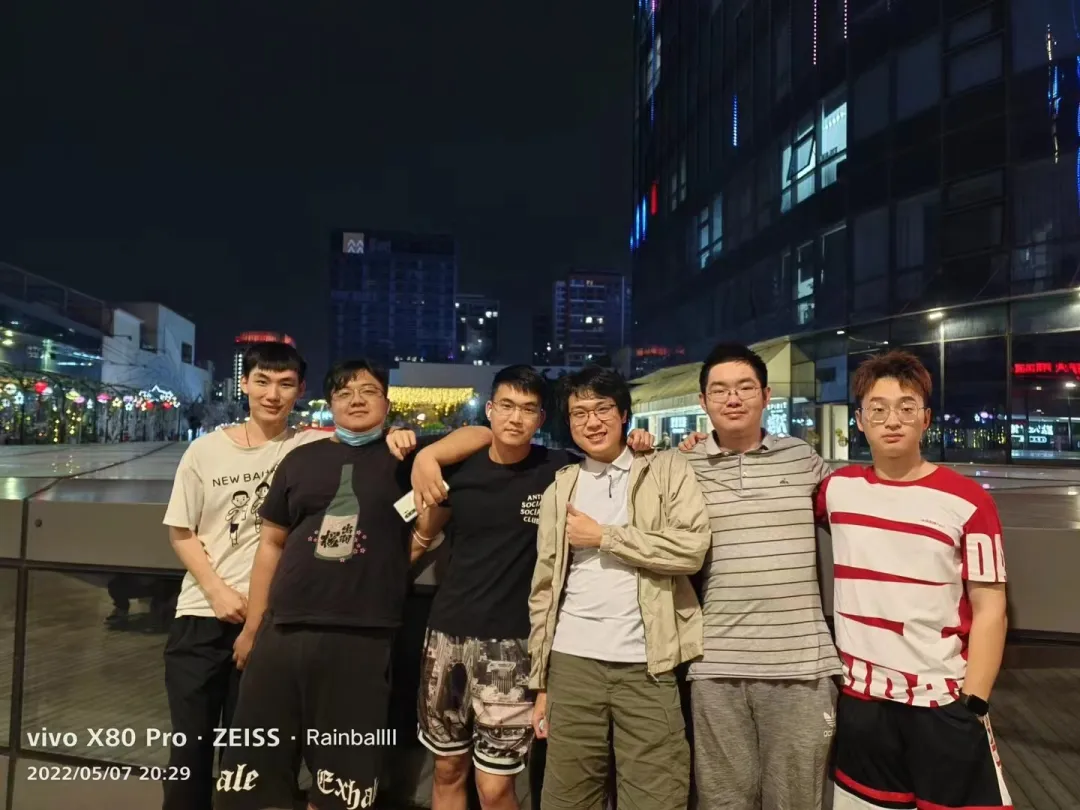PostTime:7/19/2024
Diligent and steadfast, this is the impression that Sun Baihong, a graduate from Guangdong Technion – Israel Institute of Technology (GTIIT), left on many people. During his undergraduate studies, he pursued his interests and explored the path of scientific research that suited him. Graduating with an impressive GPA of 92+, he made the decision to further his studies at the Technion.

High School: Guangzhou Tieyi High School (Asia Games City)
UG Program: Materials Science and Engineering
UG Awards: Dean's List (2021、2020), Academic Excellence Scholarship(2019-2021)
Driven by interest
"In high school, I always wanted to engage in fundamental scientific research, and GTIIT's focus on pure STEM made it perfect fit for me." As it turned out, Sun's compatibility with GTIIT was indeed remarkable. Unlike in high school where he should learn various subjects, he could concentrate more on STEM. Once he learned effective study methods, he could review the content of a course within just two or three days. The abundance of scholarships he received during his undergraduate studies stood as a testament to his hard work.
Currently, Sun has been admitted to Technion as a master's student, and in October he will continue his research. He thinks that pursuing his graduate studies at the Technion comes with several advantages. Firstly, the research groups are on a smaller scale, allowing members to easily contact each other and solve problems collaboratively. Secondly, having taken courses taught by professors, there will be mutual familiarity and understanding between them. Lastly, there is no requirement for language scores, which further adds to the appeal of studying at the Technion.

Sun and his mentor Elissaios Stavrou
"Choosing Technion also meant choosing my mentor and research direction," Sun reveals. In his junior year, he joined Associate Professor Elissaios Stavrou's research group. "My mentor is extremely meticulous in academic matters, takes responsibility for his students, and has an approachable nature. He constantly emphasizes the importance of honesty in research. Having spent at least a year working alongside him, I have gained a solid understanding of the experimental instruments in our field. And I am eager to continue my academic journey under his guidance."
He recognizes the importance of both advancing his expertise and finding his own passion to continue thriving in the field of scientific research. His affinity for "high-temperature superconductivity" originated from an online lecture. During his junior year, a guest speaker from the University of Cambridge challenged his understanding of critical transition temperatures in superconductors. The speaker revealed that applying extreme external pressure, exceeding a million atmospheres, can significantly enhance their superconducting temperatures. This revelation fueled his desire to explore further, hoping to uncover room-temperature superconducting materials in the future.
Innovation requires a calm state
The "Advanced Project (AP)" in the Materials Science and Engineering (MSE) program was my first formal research experience. The topic was assigned by my mentor and was an extension of his previous project. After an extensive literature review, we designed the experiments. Everything seemed perfect at the time, but the actual implementation proved to be challenging.

Sun (third from the left)
The first experiment failed, possibly due to equipment calibration issues. After fixing the equipment, Sun confidently proceeded with a second experiment, but encountered a new problem – could it be related to the samples? This cycle continued for the third, fourth, and fifth experiments. Sun recalls the roller coaster of emotions, with each failure followed by analysis and late-night experiments. Despite meticulously planned procedures, various challenging issues emerged. Even his mentor said, "I don't know why it is so tough." It was a bittersweet experience, as Sun shared with a mix of laughter and frustration.
"My mentor remained optimistic, understanding that innovation inherently carries risks. As time went on, I realized that a calm and balanced mindset is necessary in scientific research." From initially struggling with failure to gradually recognizing that most experiments are challenging to succeed, Sun's journey in research has been transformative. After each failure, he and his peers would sit on stools, exchanging lighthearted remarks. They accepted the results, and then moved on to the next attempt, undeterred.
Sharings
When discussing the essential skills and qualities for research, Sun shared his insights. Firstly, he emphasized the importance of effective literature search and the ability to discern relevant results. Secondly, he stressed the need for patience and giving each experiment his best effort, minimizing errors caused by a negative mindset or lack of attentiveness. Thirdly, he encouraged asking questions and engaging in discussions, seeking advice from senior students and developing personal learning methods.
For aspiring students who wish to pursue further studies, Sun believes that passion is paramount. From a high school student who studied without knowing why, merely viewing grades as a means to secure a good job, to being captivated by scientific research and experiencing the excitement of conducting experiments comparable to late-night gaming sessions, his passion continuously drives him to explore the vast world of materials. He plans to continue his pursuit of knowledge and apply for a PhD program during his master's studies, aiming to make further advancements in the field of high pressure physics.
Text: GTIIT News and Public Affairs
Photos: Sun Baihong
© GUANGDONG TECHNION-ISRAEL INSTITUTE OF TECHNOLOGY | 粤ICP备17036470号
